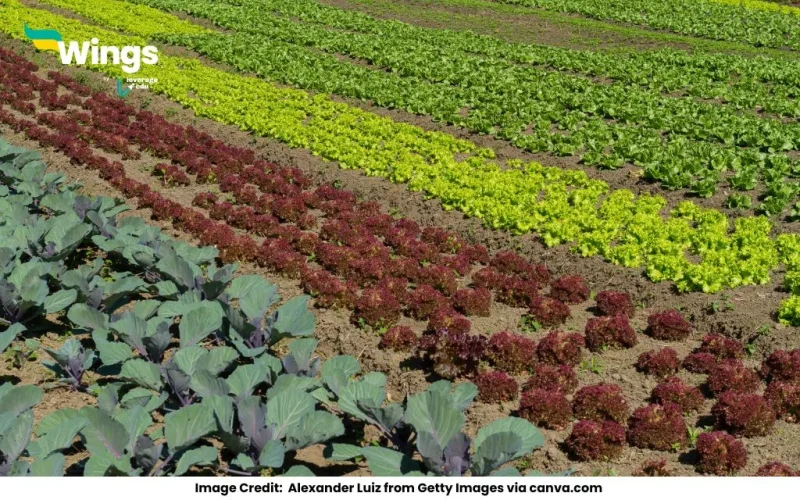Biotic factors, like pests, diseases, and soil microorganisms, can either harm or benefit crop production. Abiotic factors, such as temperature, rainfall, and soil type, directly influence plant growth and yield. When analysing how do biotic and abiotic factors affect crop production, it is important to know that favourable biotic and abiotic conditions promote healthy crops, while unfavourable conditions can reduce productivity.
Complete Answer:
Biotic and abiotic factors play a crucial role in crop production. Let’s break them down for a better understanding of the question ‘How do biotic and abiotic factors affect crop production’:
1. Affect of Biotic Factors on Crop Production:
Biotic factors refer to living components that affect crop growth. These include:
- Pests and Insects: Certain pests, like aphids or locusts, can damage crops by eating leaves or roots, reducing the plant’s ability to grow and produce food. On the other hand, beneficial insects like bees help in pollination, which is vital for fruit and seed production.
- Diseases: Fungi, bacteria, and viruses can infect plants, leading to diseases like blight or rust. These diseases can weaken plants, affect their growth, or even kill them, leading to poor crop yields.
- Soil Organisms: Microorganisms like bacteria and fungi can improve soil health by decomposing organic matter and making nutrients available to plants. However, harmful microorganisms can make the soil unhealthy, leading to reduced crop productivity.
2. Affect of Abiotic Factors on Crop Production:
Abiotic factors are non-living components that influence crop production. They include:
- Temperature: Plants grow best in specific temperature ranges. If the temperature is too high or too low, it can stress the plants, affecting their growth and reducing yields. For example, extreme heat can cause flowers to wilt, while frost can damage crops.
- Water (Rainfall and Irrigation): Water is essential for plant growth. If there is too much or too little water, it can harm the crops. Too much water can lead to waterlogging, damaging roots, while insufficient water causes drought stress, limiting growth.
- Soil Type and Fertility: The soil provides essential nutrients for crops. Fertile soil with the right texture (loamy soil) allows plants to grow better, while poor or compacted soil can limit root development and nutrient absorption, reducing crop yield.
- Sunlight: Sunlight is necessary for photosynthesis, the process by which plants make their food. Without enough sunlight, plants may not grow properly and yield low crops.
Common Biology Questions:


 One app for all your study abroad needs
One app for all your study abroad needs











 60,000+ students trusted us with their dreams. Take the first step today!
60,000+ students trusted us with their dreams. Take the first step today!